Engineering Prof Grows All Veggies for his Kitchen in Recycled Refrigerators on Terrace
Thayumanavan Kunabalan from Tamil Nadu is setting an example for urban gardeners by growing almost all varieties of vegetables in 200 grow bags and 25 old refrigerators.
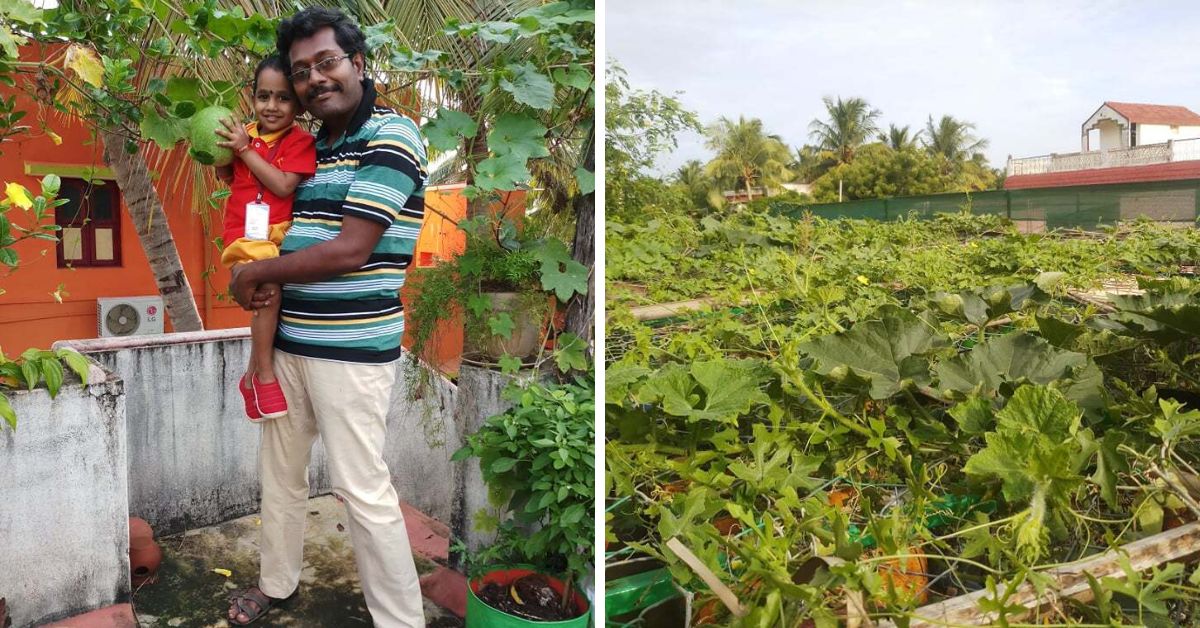
Neyveli-resident and engineering professor Thayumanavan Kunapalan’s Facebook cover photo is a painting of a farmer ploughing the land with two bullocks. His social media bio reads, “passionate urban gardener”. And he is rightly so.
Thayumanavan grew up in Karaikal, Pondicherry. His father Kunapalan maintained a beautiful garden with flowering plants, vegetables and medicinal herbs. As a child, Thayumanavan assisted him in these activities and slowly developed an interest in the field.
He grew up to become an electrical engineering professor currently teaching at the University College of Engineering, Panruti. Till 2015, he was not able to pursue his passion for gardening due to space constraints in the rented apartment. But after shifting to his own house in Neyveli, Thayumanavan is growing everything under the sun.
“I have a 1300 square feet terrace and 5.5 cents of land behind my house, both of which are completely utilised for farming. Almost all vegetables except onion and garlic are cultivated here, organically,” says 39-year-old Thayumanavan.
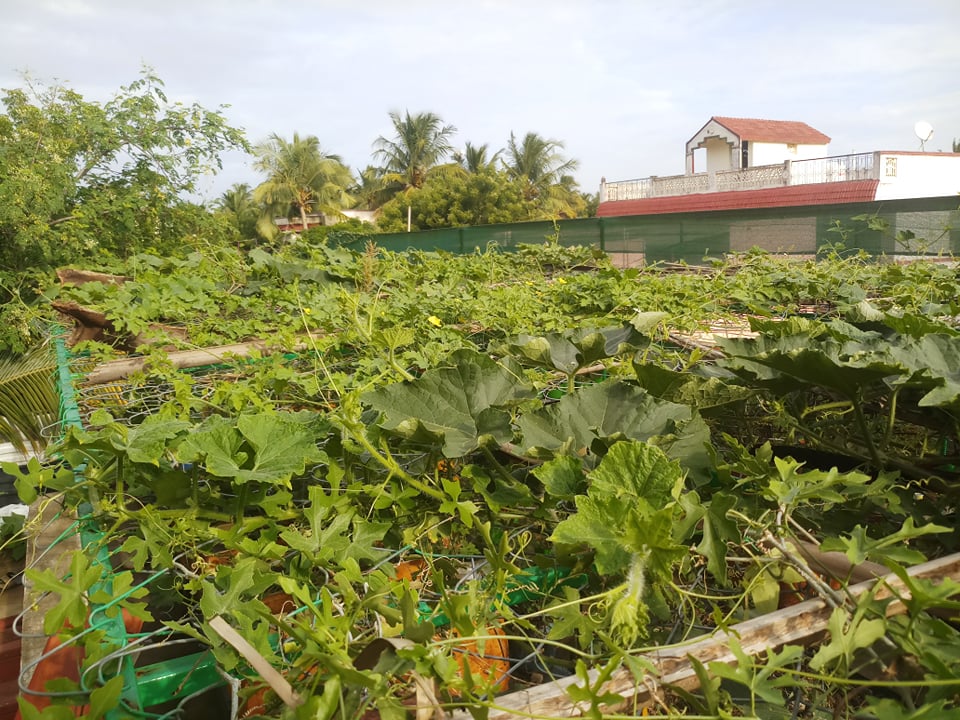
With the help of his family, the urban gardener grows brinjal, okra, tomatoes, chillies, cucumber, beetroot, radish, sweet potato, drumstick, banana, and all types of creepers and gourds. All these are cultivated in 150-200 grow bags and pots spread over the terrace. He also collects old refrigerators for small amounts from scrap dealers and grows crops inside them. “At present, there are 20-25 refrigerators upon my terrace filled with soil and plants,” says the creative farmer.
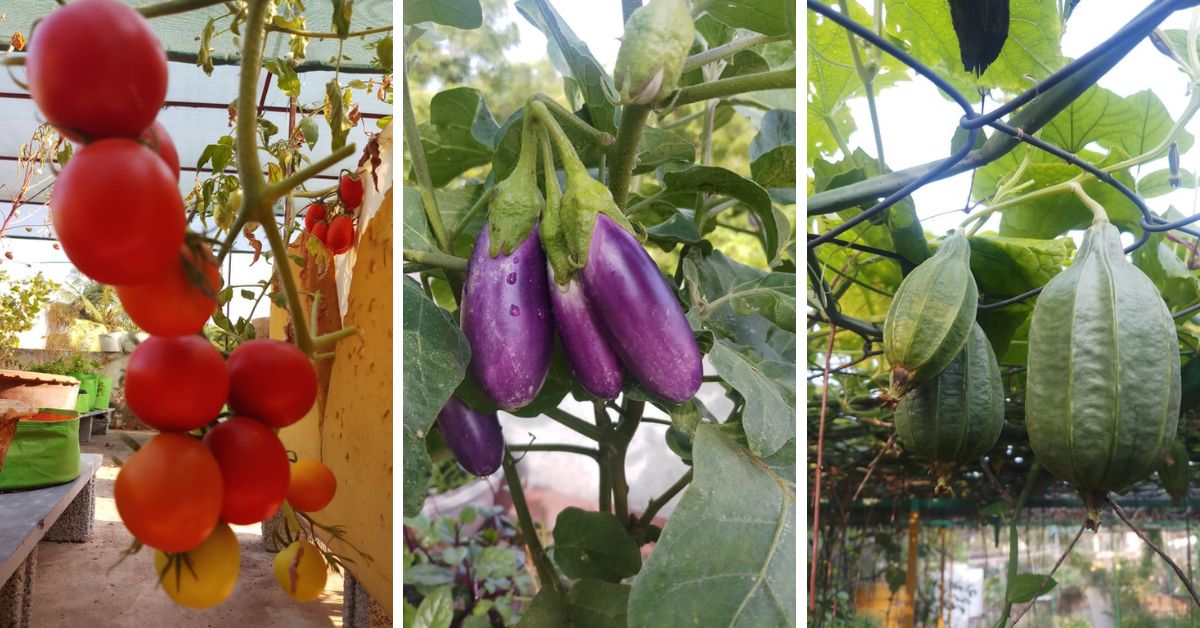
In his early days of farming, Thayumanavan used to buy vermicompost from the market to get good yields. Now, from soil mixes to pesticides, everything is prepared by him. “I used to spend a lot of money on fertilisers. Once YouTube became popular, I began following some urban garden experts. The videos gave me the confidence to assemble homemade agricultural products,” he says.
Farming concoctions like jeevamritha are made by himself to enrich the plants. Natural pesticides like neem oil and mirchi/ ginger-garlic paste are also prepared. He adds, “I can collect around 20-25 grow bags full of cow dung from right outside my house.”
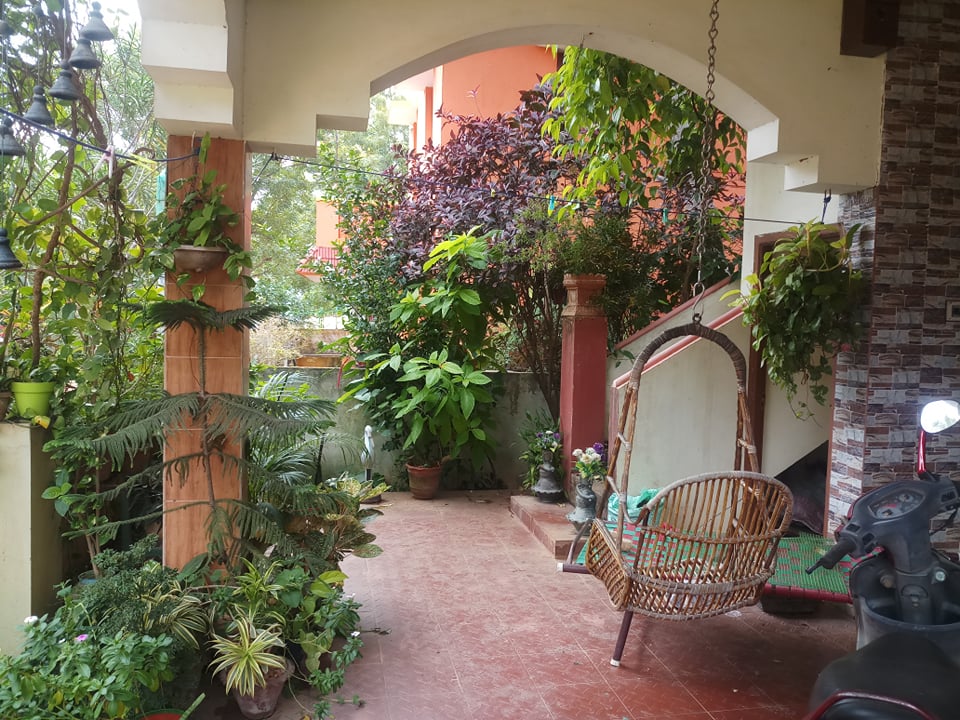
Thayumanavan named his farmland ‘Nilavanam’. “Nila is my daughter’s name and vanam means forest,” he says.
Unique soil mix
Unlike in conventional gardening, Thayumanavan doesn’t add cocopeat to his garden soil mix. He collects sugarcane waste (bagasse) from local vendors which are processed once again in a shredding machine he owns. This compost is mixed with soil and cow dung in equal proportion to which the seeds are sown, after 90 days.
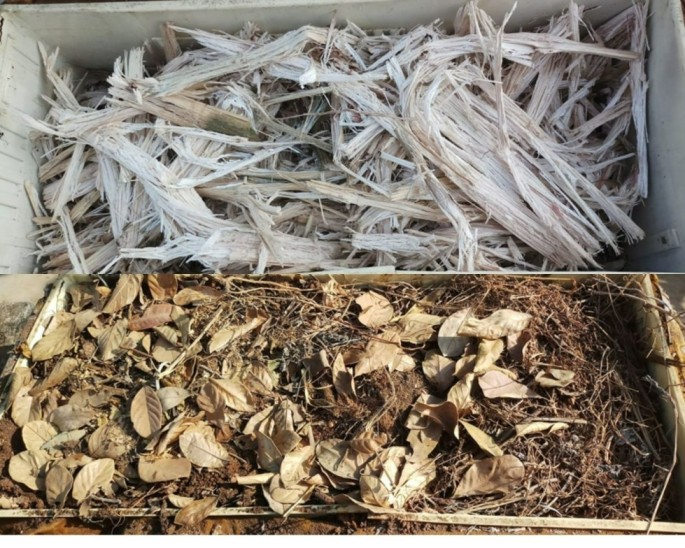
“There is no need to waste money by purchasing coco peat, which is not a sustainable option. Its effect doesn’t last long unlike my mix which can be used for up to three years. Additionally, I have prepared a kitchen waste compost which is also added occasionally to the soil mix,” explains the gardener.
Thayumanavan says that the soil mix prepared this way is similar to forest soil, rich in organic matter. Employing these ideas, he can grow a surplus of vegetables.
He adds, “Initially the produce were used by my four-member family alone. But now, I sell the excess items and make up to Rs 2,000 per month. Though my aim is not to earn money but growing non-poisonous food for more people. It’s not possible to provide the items for everyone but I give seeds as well as tips to anyone interested,” says the farmer.
He also adds it is important to recycle soil just like other products and using sugarcane bagasse is one method of doing so. “If you are using a new soil mix for each sowing period, then what is the use of organic farming?” he asks.
Thayumanavan is part of a WhatsApp group of 250 members in which he sells and buys organic produce as well as seeds.
“Malabar spinach, both red and green, is the star item of my garden and grows abundantly. Many people, especially my colleagues, ask for radish too which is a pretty rare item in the market,” he gushes.
He started poultry farming with chicken and ducks, as the first step toward integrated farming and also plans to set up a biogas plant soon. His wife and two daughters are in full support of all his farming endeavours. If you found our stories insightful, informative, or even just enjoyable, we invite you to consider making a voluntary payment to support the work we do at The Better India. Your contribution helps us continue producing quality content that educates, inspires, and drives positive change. Choose one of the payment options below for your contribution- By paying for the stories you value, you directly contribute to sustaining our efforts focused on making a difference in the world. Together, let’s ensure that impactful stories continue to be told and shared, enriching lives and communities alike. Thank you for your support. Here are some frequently asked questions you might find helpful to know why you are contributing?

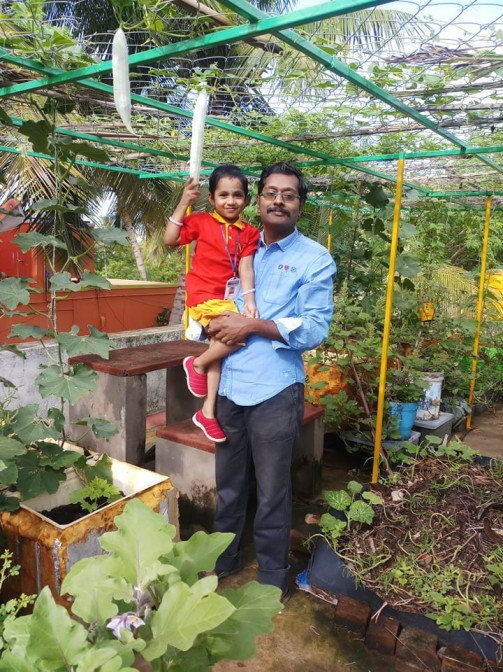
“Next time when you find an excuse to get away from setting up a small terrace garden, remember that it costs your health. After all, my greatest motivation for all these activities is my family’s health,” he says.
Edited by Yoshita Rao
This story made me
- 97
- 121
- 89
- 167













